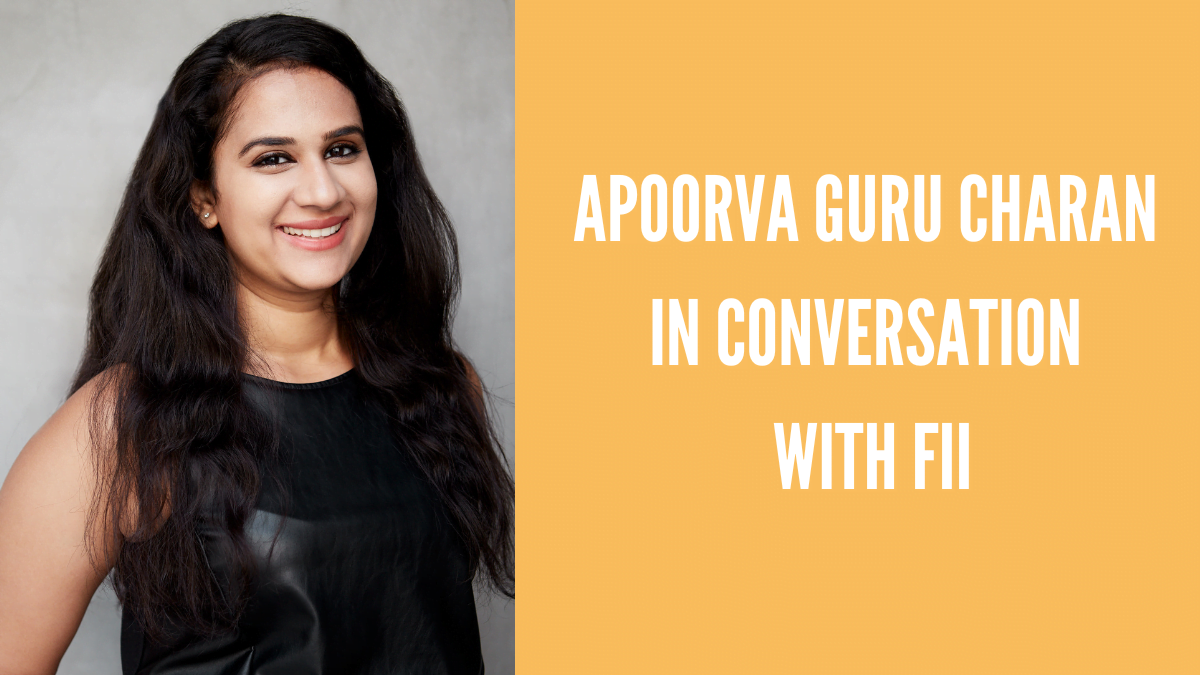Apoorva Guru Charan is an acclaimed film producer who started her career with several independent films, such as Interior (2018), A Woman of No Importance, Ben and Mimi, Mimi and Ben, and most significantly in Joyland alongside the director Saim Sadiq.
In this interview, Apoorva talks about her career as a film producer, her time at Columbia and her views on filmmaking.
FII: Can you tell us a little bit about yourself and your life trajectory, your scholarly pursuits and what led you into film production?
Apoorva Guru Charan: I was born in Hyderabad in India and moved to Northern California when I was six years old. I am an only child. We ended up moving back to Hyderabad when I was in high school. I think one of the unique things about Hyderabad is that it has a rich culture of theater.
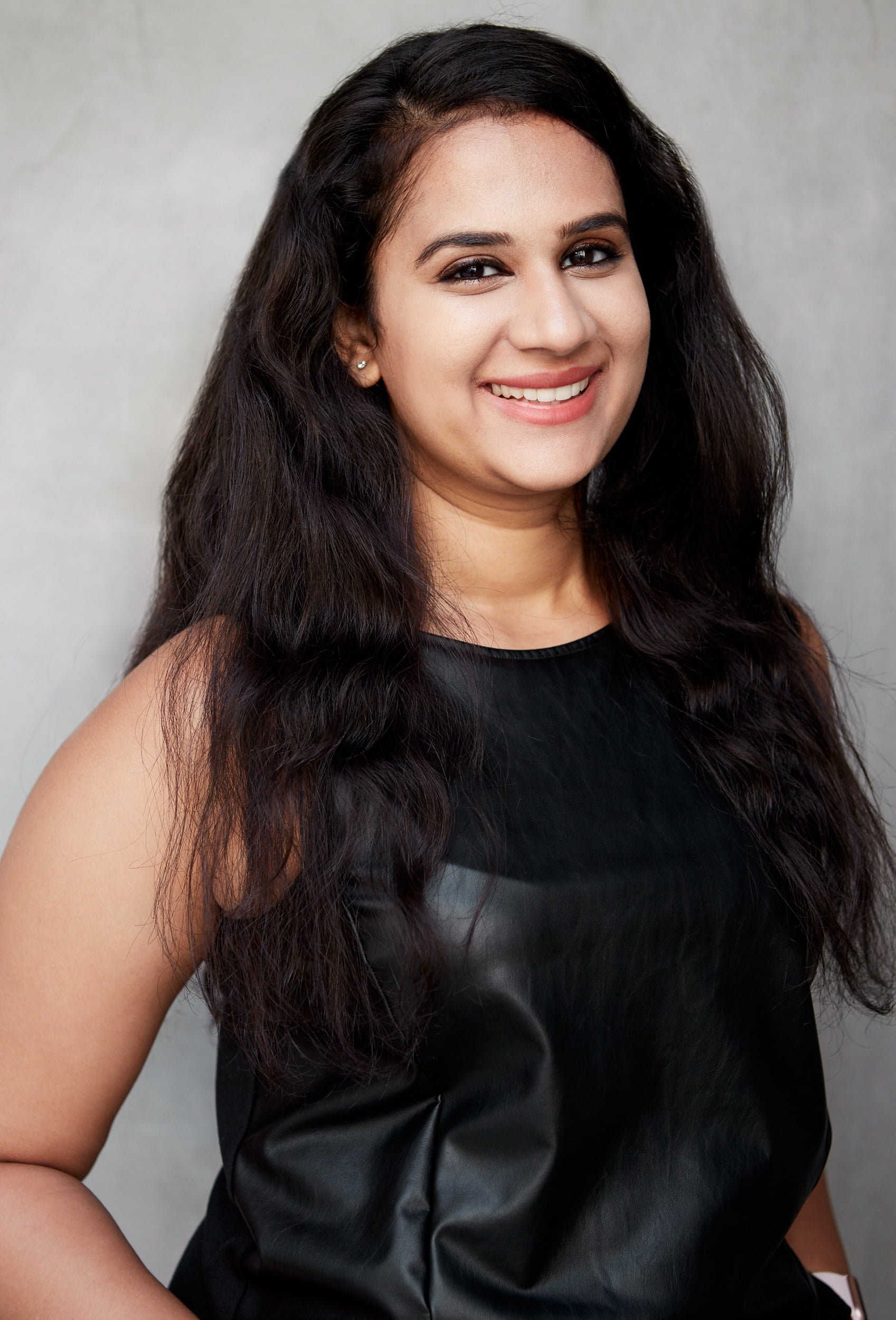
The high school that I ended up at had a really strong theater program. It started off as just us friends acting in plays, and then slowly I got into producing. In the 12th grade, I produced my first musical. It was The Little Princess. It’s funny because I was doing all the official things 14 years ago that I do today! I don’t think I even knew what producing meant: I was just really motivated to put up a musical. When the time came to go to college, I wanted to study theater management in Singapore. My mother was against the idea, so I ended up going to business school in Singapore at the Singapore Management University and then continued to produce plays there. I produced for the university and then I was starting to understand that this was something that I really enjoyed doing.
I like working with people and being creative. I like having an end product and working towards something and then sharing it with an audience. So when I graduated, I got a job at Fremantle Media out of the Singapore office. They produced the X Factor Idols and Talent series all around the world. Our territories were in Southeast Asia, so we would work on shows like X Factor Indonesia, Vietnam Idol, and Thailand’s Got Talent. It was really fun to be able to travel around and work with languages that I was not familiar with, in cultures that I was not familiar with, but still understand how to produce something that will translate to a very wide audience. I pull a lot of knowledge and experience from what I learned in those very early days because we work with a lot of non-English language content. This was 2013, 2014, when Facebook had just launched their video application. It was still the time when YouTube viral videos were making lots of money and people would think about how to go viral.
I was lucky enough to get into Columbia; the three years there were tough. I think we all really worked hard, I made a lot of relationships that I carry with me and met a lot of filmmakers that I continue to work with.
Apoorva Guru Charan
I think working there solidified even more that I wanted to be a producer. Since I had been working in unscripted shows and in theater, I really wanted to understand how to make films. I spent a year prepping my college applications for grad school. I had never made a short film before, and then made my first couple of short films in Singapore with friends. I was lucky enough to get into Columbia; the three years there were tough. I think we all really worked hard, I made a lot of relationships that I carry with me and met a lot of filmmakers that I continue to work with.
After Columbia, I moved to LA about five years ago. I spent a year at Big Beach, which is a film production and finance company. They’re the company behind films like Farewell, Little Sunshine, and Loving. I learned so much when I was there. Then I spent a year at Disney in the live studio, so I was lucky enough to work on the new Mulan, the new Cruella, the new Little Mermaid. From seeing how films under $5 million get made at my first job at Big Beach to see how films that would cost $250 million get made. That was a big learning curve. I learned a lot at Disney.
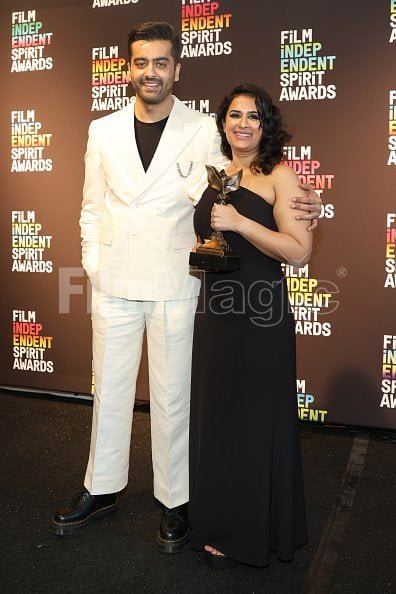
I went to my last job with these two really wonderful writers. I learned how to work with some of the most respected writers in the industry and learned how to develop scripts really intimately. While I had been working at each of these three jobs for about a year each, I had continued to produce independently. I think I did one or two shorts and was doing various labs and programs for independent filmmakers. We’re lucky to live in a time where I think there is so much active and development support for independent artists.
FII: Joyland was the first feature-length film that you produced. What specifically attracted you to that story and what led you to have so much faith in the script?
Apoorva Guru Charan: I think even five years ago the three characters in Joyland were there. They changed and grew. The structure of the story, of a man from a lower middle class background who’s looking for a job at a dance theatre and has a relationship with a trans actor was very much there. The initial drafts of the script were so compelling and so rich. It was a story that I had never heard before.
In Saim’s first couple of short films, it was just so clear to see how he would paint each frame. He had such a way with the characters. The script just opened so many doors for us because whether it were financiers, whether it were actors, everybody was so moved by the script that the success of the film really is due to the screenwriting.
FII: So much of the work you’ve done till day explores themes of sex, intimacy and violence. What is it about these themes that draw you into its cinematic representation?
Apoorva Guru Charan: As a filmmaker, I am just interested in the human experience. And I think perhaps sex, violence and intimacy are things that are harder to talk about amongst certain cultures and communities. That’s why it becomes important to at least explore them in a cinematic way to give people a way to talk about them.
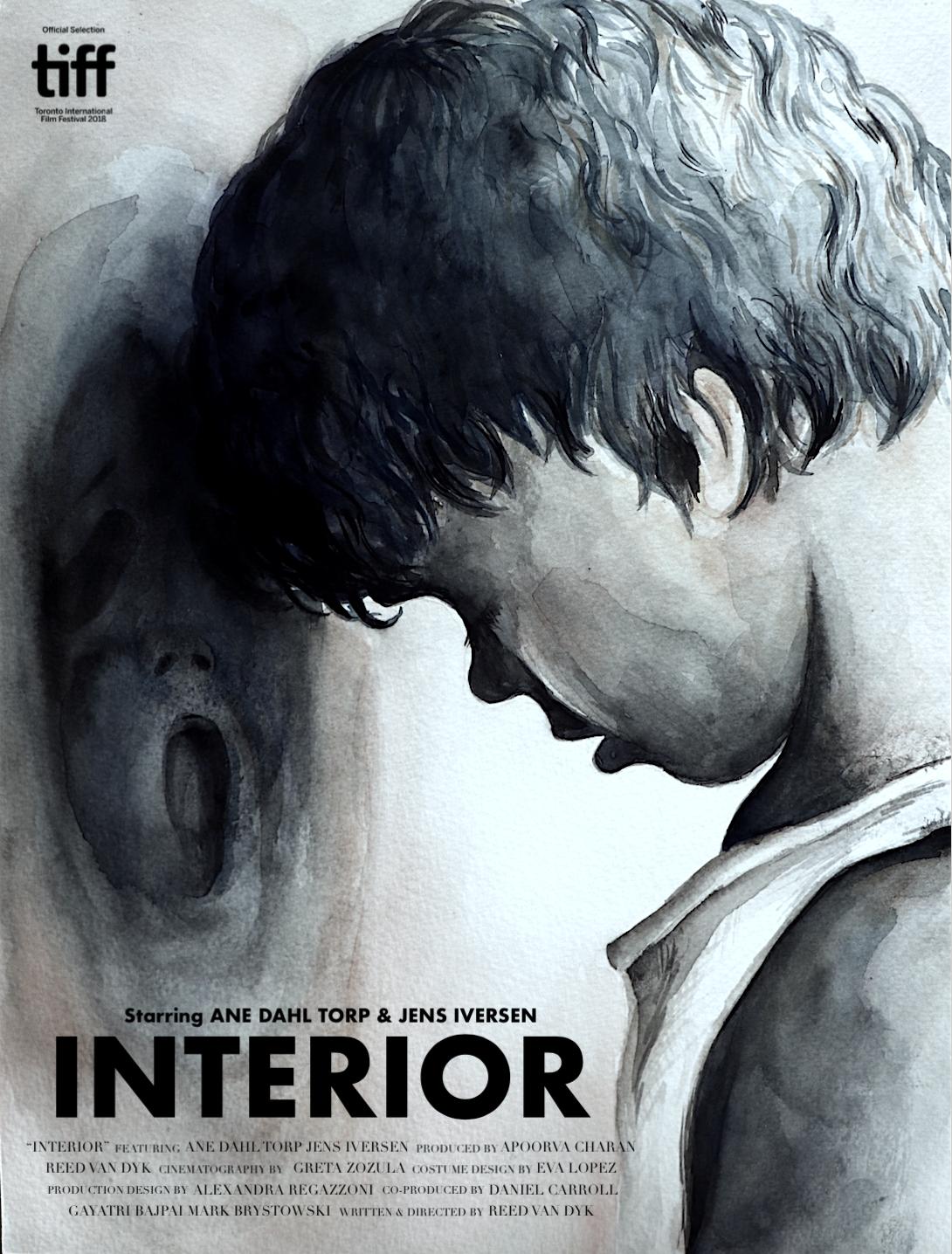
In terms of A Woman of No Importance, I came on to that one after it was shot in post-production to redo the editorial, refinish the film, and assist with film festival strategy. When I saw the short film, I felt that it put the protagonist in a really interesting position, where she was not the victim of sexual violence, but she witnessed it. What is she going to do with that information? Where will her loyalty align? That was really interesting. because we just assume everyone’s going to do the right thing. Everyone’s going to be noble. But you also have to survive. What are you going to do in order to survive?
In case of Ben and Mimi, Mimi and Ben, it’s a very intimate portrait of a couple that’s isolated. The woman has somewhat of a deeper connection with a caterpillar than with her partner. The script made me so curious.
All of this is to say that there are individual reasons why I produce certain movies. I don’t have a mandate as a filmmaker to seek out stories that talk about intimacy, sex, and violence. I would say that as a filmmaker, I want to see really unique ways of how we as human beings experience certain emotions or certain relationships that we haven’t thought about before.
FII: What kind of a creative capacity does being a producer offer to you in this space?
Apoorva Guru Charan: It offers immense creative capacity. I definitely seek out directors who allow me to be creative alongside them, because otherwise it’s just not fun. With independent filmmaking, it’s not like any of us are making lots of money. So then if it’s at the very least not creatively fulfilling, it’s hard to understand what the motivation is.
With independent filmmaking, it’s not like any of us are making lots of money. So then if it’s at the very least not creatively fulfilling, it’s hard to understand what the motivation is.
Apoorva Guru Charan
I seek out partners who are true creative collaborators. And I am bratty enough so that if somebody isn’t truly collaborative, it’s unlikely that the partnership will continue. I don’t mean that as a rule or a threat, I just think it really that is what a creative relationship is. I worked very closely in the screenwriting phase. I think that’s probably where development is the most fun for me, because we get into the characters and the story. We ask questions like why we’re telling the story, what are the feelings that we’re exploring, what are the character arcs and whether it works structurally?
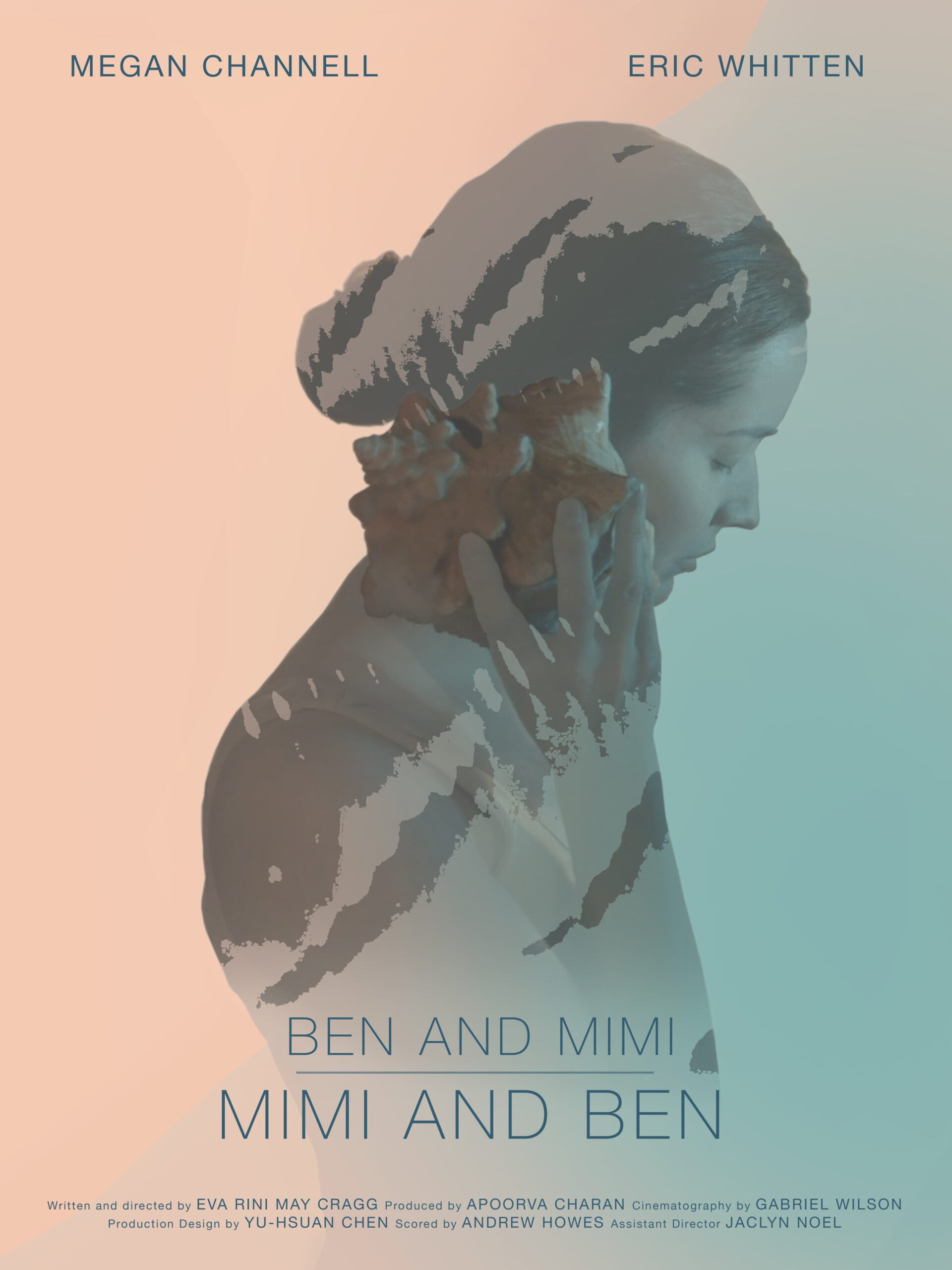
The development process and what is discovered just through discussion and the ideation process is really valuable. As a creative producer, I am there every step of the way. I am there in casting helping hire the right DP. I am helping to hire the right production designer. We’re in the editorial, the sound mix and the color. So I am truly very much aligned and in lockstep with the director, always trying to find a way to make the film the best version of it. I think film works best when it’s truly collaborative.
FII: One doesn’t often see women in film production. What are some of the challenges that you experienced as a woman in this field?
Apoorva Guru Charan: I would say that there are a lot of women in film. And there are a lot of women in film in India too. I’m in the early days of my career, there are many women who came before us. Guneet Monga was working decades before any of us. There’s Swapna Dutt in South India. Elahe Hipttola, another producer of Hyderabadi descent who has produced some incredibly critically acclaimed Indian cinema. Swati Shetty. So the question to ask is how we celebrate and recognize these women, how do we support them in tangible ways (and I mean beyond social media during award campaigns), how can we create forums where they can come together and have candid converstions, and how can we structurally encourage and make space for female producers given that the ones we do have and are lucky enough to look up to are incredibly successful.
I was speaking to India specifically. This is not to say that there aren’t difficulties being a producer in the West, there absolutely are. But, I don’t think my challenges have been because I’m a woman. I think there’s maybe microaggressions because people think you’re young and sweet. They don’t expect you to fight back is usually small stuff- people don’t expect you to fight back or disagree with them, especially as a first-time female producer.
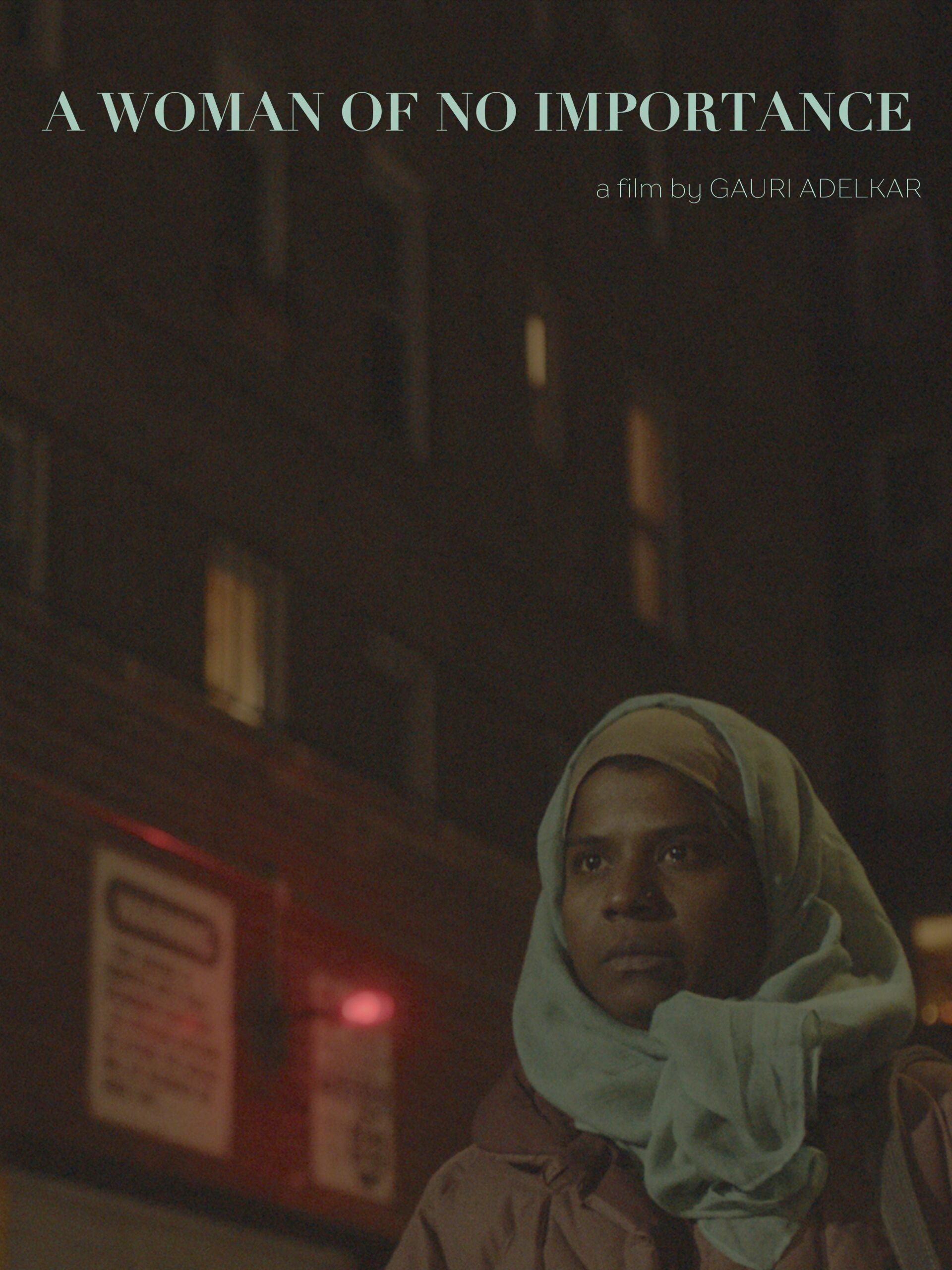
Other than that, sometimes, there are some men on our team who find it difficult to accept female authority on the set. We’re socially intelligent enough to understand where the micro agressions understand what they are and where are they coming from, right? So we work through them.
FII: Joyland faced several censorial issues, especially in Pakistan. This is a problem that the South Asian region as a whole experiences. In light of this, what does freedom of expression in film mean for a filmmaker trying to navigate the boundaries that sense of what creates?
Apoorva Guru Charan: I think freedom of expression is paramount. It is really heartbreaking for a filmmaker to tell a story that is honest and truthful and then you cannot share it with the world. I think in terms of Joyland, we knew that there were some scenes that wouldn’t receive the censor approval.
We were asking what are the alternative ways that we can shoot this so that we’re still getting the essence of this story and delivering the emotional beats and the experience of this film as a whole. We’d already kind of negotiated within ourselves and made some concessions. We did get all of the required censor board approvals. It was just that our release came at a time when there was also a change in the political landscape of Pakistan, and we were somewhat used as a tool. And I think Saim and the team in Pakistan really rallied on the ground and had a grassroots campaign in order to overturn that.
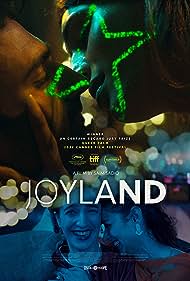
In terms of filmmakers, we will find a way, whether it is overturning the decisions that were made, like how we did in the case of Joyland or in the case of Zindagi Tamasha, which is now freely available on YouTube and Vimeo. Adult audiences should be able to decide for themselves what they want to watch. And, with the internet the way it is, everyone watches everything. And ultimately what you’re doing when you’re censoring is creating an unregulated and unmonetised market. They’re going to pirate it. Then the impact of that is felt by the filmmakers who are not able to generate revenue because now they’ve lost so much money they could have earned through ticket sales. That affects the industry as a whole.
FII: South Asia especially has seen a lot of propaganda films coming out with clear extremist agenda, say The Kerala Story and so on and so forth. Knowing that film can work as ideological state apparatus, what do you think are the social responsibilities of film as a medium, especially in a socio-political region that is so conflicted, like India or Pakistan?
Apoorva Guru Charan: Yeah, I would say that from a filmmaking point of view, and as a filmmaker, my social responsibility is to my characters and my audience. I want to make sure that we’re representing characters accurately. If you have a character who comes from a minority community, suddenly they’re put in this position where they have to represent a whole community without any nuance. It does mean that they lose some of their individualism. So we try to balance that by saying how can we allow this character to be themselves, be human, but also knowing that they have to represent a whole community.
My social responsibility to audiences is that I respect them. I don’t necessarily think I know more or better than them. I know that they’re intelligent people and share with them stories that I think matter and not waste their time.
Apoorva Guru Charan
My social responsibility to audiences is that I respect them. I don’t necessarily think I know more or better than them. I know that they’re intelligent people and share with them stories that I think matter and not waste their time. I am not interested in educating audiences. I want to make them feel things and create a more expansive world for them. I don’t think we’re interested in trying to teach anybody or change anybody’s point of view. I think we’re just trying to tell human stories.
